Our war is defensive. It aims to drive out the invader and show the Russian regime and society that this war is pointless and will achieve nothing.
Dr. Oleksandr Shulga is the director of the Institute for Russian Conflict Studies and Analysis (IKAR), the only Ukrainian institution that monitors sociological developments in Russia and currently focuses on analysing what is published in Russian media and social networks. Shulga has 16 years of advanced experience in the field of quantitative and qualitative sociological research and has conducted studies in various fields, including the potential risk of escalation of tensions and instability.
Álvaro Peñas: The “Road Home”, an association of mothers and wives of Russian soldiers, has recently been declared a “foreign agent”. Is this, as it was in the Afghan war, Russia’s Achilles’ heel?
Dr. Oleksandr Shulga: Russian society is against a new mass mobilisation and this is, in my opinion, the reason why it has not yet taken place. This has also led to a significant increase in the money offered to volunteers to enlist, from one million roubles (about ten thousand euros) to one million seven hundred thousand roubles in some regions (17,000 euros). This is a very clear sign that the Russian regime is desperate for recruits because of high casualties. Obviously, it would be much cheaper to announce a mass mobilisation, but they don’t, and even the ultra-nationalists who demanded mobilisation are in jail or silent for fear of arrest.
This is a big problem for the regime, which needs time to build up human resources and equipment, and is the reason why it wants to freeze the conflict, a kind of Minsk 3.
Mothers’ and soldiers’ wives’ organisations, such as “Road Home”, are a problem because the regime cannot imprison and repress their members openly, but can restrict their activities by declaring them “foreign agents”.
Money, at least with foreigners, is earned if you survive. It does not pay if the soldier is missing. For example, in the Moskva sinking, Russia claimed that there was one dead and 27 missing.
That’s right, the relatives of those killed in action receive money, but the relatives of those missing in action receive nothing. There have been cases where if the bodies are unrecognisable, because of injuries sustained at the hands of artillery or drones, their identity is not recognised and therefore no one receives their financial compensation. The atmosphere in Russia is that its government has a complete disregard for soldiers or their families. It is not a very humane model of an army.
Another very important point is the huge salaries if you survive, but this is not only with mercenaries from Africa or Nepal, it also happens with Russian soldiers. Given what is happening on the frontline, we could say that the Ukrainian army is saving the Russian military budget a lot of money.
A group of soldiers posted a video claiming that they had been sent to Rostov for a medical examination, but were taken to the front. What kind of army does that?
An army that needs “cannon fodder”. It is also important to note the dissonance we have seen with criminals and rapists who have been able to return home, in some cases to return to commit crimes, after six months of service. However, the mobilised soldiers will not return home until the end of “Special Military Operation”.
In other words, those who have complied with the law have been at war for more than a year and have no prospect of returning home. This has not yet damaged the Kremlin regime because the mobilised soldiers come from very different and dispersed parts of Russia.
Mobilisation is huge in regions such as Buratia, at 10 per cent, while St. Petersburg affects only 0.2 per cent.
Mobilisation is avoided in places where protests can take place or where the organisational capacity of families is greater. This is cynical, but logical.
But won’t the current cost in lives of the Russian army force the Kremlin to mobilise more?
I believe that the recruitment of foreigners will increase, and indeed this is the best proof of the problems of mobilisation. However, their numbers seem insufficient to meet Russia’s needs on the front. Shells and drones are available from other countries, but soldiers are not. That is why Russia is offering huge amounts of money to encourage volunteers.
Following Putin’s visit to North Korea, it seems that the communist regime might send soldiers to Ukraine, although it appears that they will be in the rearguard.
Yes, the point is to delay a new mobilisation because Putin’s regime undoubtedly has no problem with a protracted war, because it has no limits and no moral restraints. But Russian society, which is laying the dead, can react to the failures of its army or Ukrainian successes, and that can affect the conduct of the war. It is important for the West to understand that, unlike Putin, the Russians do have limits.
It seems that the first F16s are finally operational in Ukraine. Do Western weapons, despite arriving late and badly, make a difference?
Certainly. The use of precise weapons such as HIMARS on Russian territory had an immediate effect on enemy operations against Kharkiv, which ended in failure. Imagine the effect that longer-range weapons can have. It is also common to hear that Western weapons, such as the F16, will not make a difference because their numbers are irrelevant; the same was said of the Javelin, the M777 or the HIMARS. The truth is that these weapons make a difference and all of them will be decisive in winning the war; the best proof is that Ukraine is still resisting Russian troops and defending the front.
Our mission is not to conquer Russia, we don’t want that. Our war is defensive and aims to drive out the invader and show the Russian regime and society that this war is pointless and will achieve nothing.
However, it seems that most of Russian society still trusts the official narrative. Do you think the Russian media are as effective in Russia as they are in distorting reality in the West?
Propaganda in Western countries is very dangerous and very successful. A good example was Putin’s manoeuvre before the peace conference in Switzerland: “Give me four whole regions and immediately there will be a ceasefire and peace”. He did the same as Hitler did 90 years ago in Austria or Czechoslovakia. Many in the West have forgotten the past and listen to these siren songs that are nothing but lies.
As for the Russians, propaganda employs all the myths and prejudices of their society. For example, anti-Americanism, anti-Westernism or the superiority of Russia over other peoples. Thus, Ukrainians are presented in this light and it is claimed that the war aims to “liberate Ukrainians” from these evils. This greater good justifies the war of aggression and all that goes with it. It is a lie, yes, but it uses arguments that are deeply rooted in the Russian public and that is why it is so effective. Besides, propaganda, unlike the truth, knows no bounds.
Read also
Manuel Acosta: “Since the very foundation of Spain, neither Catalonia could be understood without Spain, nor Spain without Catalonia”
Interview with Manuel Acosta Elías, PhD in Hispanic Philology, graduate in Geography and History from the University of Barcelona and VOX MP for Barcelona in the Parliament of Catalonia, where he is the spokesman for the University, Culture and Education Committees.
Álvaro Peñas
Just Another War of Conquest
No “denazification”, no protection of minorities, no NATO... the invasion of Ukraine is a war of conquest. The existential threat to Russia is the existence of a Ukrainian state.
Álvaro Peñas
Dante Augusto Palma: Milei is fighting the cultural battle by defending the “ideas of freedom”.
Dante Augusto Palma is a professor of Philosophy and Doctor of Political Science, and a researcher on issues related to political philosophy, philosophy of law and philosophy of communication.



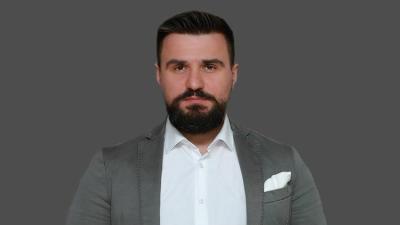


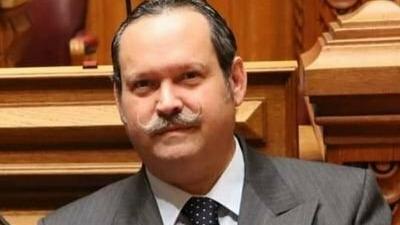

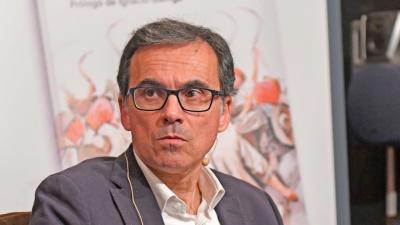

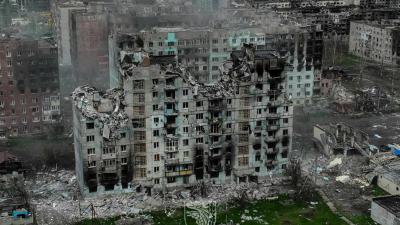

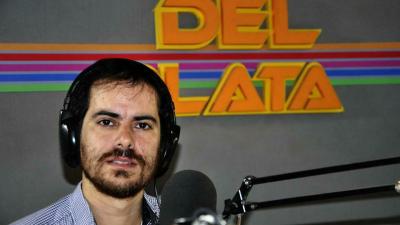

Comments (0)